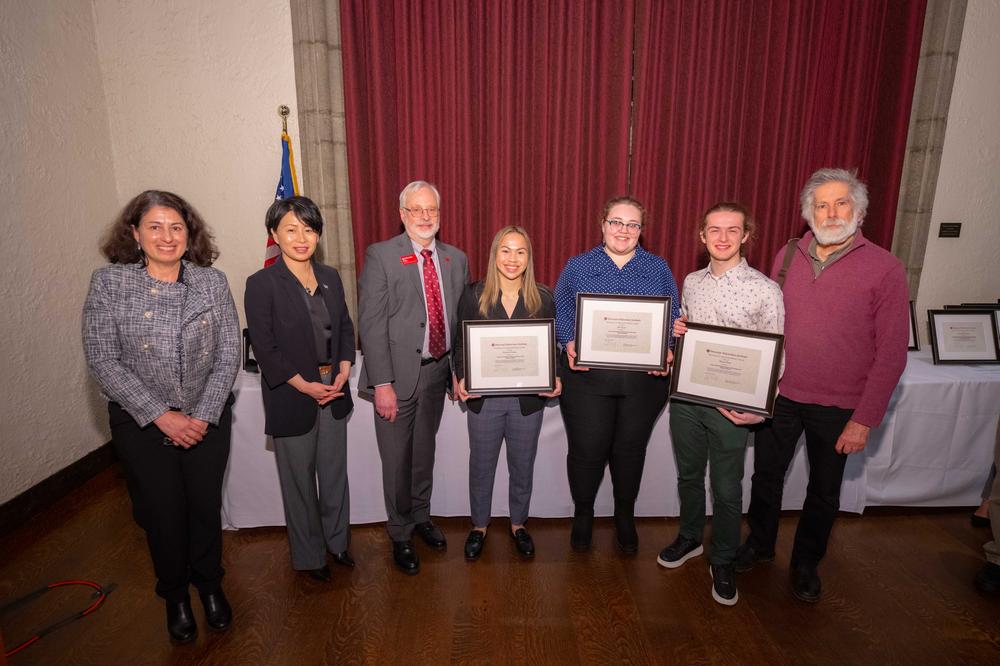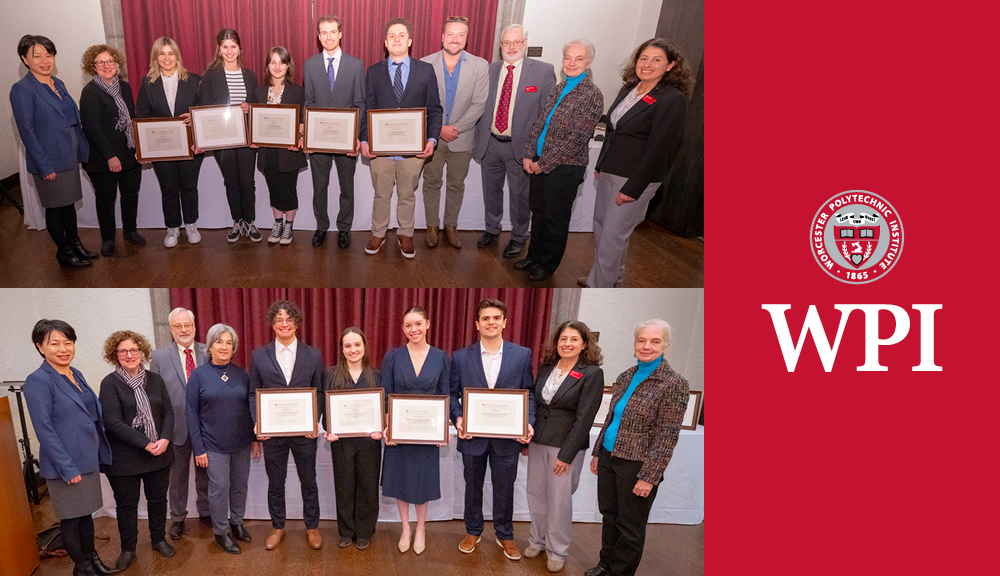A team of Worcester Polytechnic Institute (WPI) student researchers received a Community Engagement Award on March 2, 2010, from the Colleges of Worcester Consortium Inc. for a project that helped the Worcester Art Museum identify a cost-effective and "green friendly" alternative energy source.
Given annually, the Community Engagement Awards are presented to individual students and groups of students from consortium institutions that provided outstanding service to their communities within the past year. Last fall, WPI juniors Travis Collins, 20, an electrical and computer engineering major from Westfield, Mass.; and mechanical engineering majors Christopher Gowell, 21, of West Bridgewater, Mass., and Aaron Scott Hall-Stinson, 20, of Providence, R.I., were charged with helping Worcester Art Museum find an alternative energy source to completely or partially power its Higgins Education Wing. Advised by WPI professors William Baller and Stephen Bitar, the team had three goals: to determine and evaluate energy use and billing strategies for the Higgins Education Wing; to research possible funding sources for green technology; and to investigate the feasibility of green roofs and solar panels for the facility. For energy savings, the team urged greater use of smart power strips and desktop occupancy sensors to control desktop lighting in the Higgins Wing. Sensors will pay for themselves in eight months, the students found.
According to Colleges of Worcester Consortium CEO Mark Bilotta, in completing their project, "Travis Collins, Chris Gowell, and Aaron Scott Hall-Stinson performed exemplary work."
"We’re extremely happy to be recognized by the Colleges of Worcester Consortium for our work with the Worcester Art Museum," the students said in a joint statement. "All of our hard work paid off. This project allowed us to not only realize our own ambitions, but it also allowed us to give back to the Worcester community. For that, we are most proud."
The team’s research was part of their Interactive Qualifying Project (IQP), a research-driven project all WPI students must complete. The IQP applies science and technology to address an important societal need or issue. About two-thirds of students complete a project at one of the university’s 26 off-campus project centers, which are located around the world. These projects offer students the opportunity to apply their scientific and technical knowledge to tackle real problems that affect the quality of people’s lives. In doing so, students develop an understanding of other cultures and see how their work can have a positive impact on real communities.
According to Professor Robert Krueger, director of WPI’s Worcester Community Project Center, WPI students make a positive and real impact on communities around the globe, including Worcester, through their "thoughtful, strategic, and purposeful problem-solving techniques. The Worcester Community Project Center has a history of working with local sponsors and projects that transcend ’the local.’ It is because of this unique degree requirement coupled with the skills and enthusiasm of students like Travis, Christopher, and Aaron that make these projects win-win. They provide excellent educational opportunities for our students and research that our sponsors can act upon."
From their IQP, the Worcester Art Museum team said they gained "valuable experience working in the professional world. We learned how to work as a team and how to rely on and learn from each other. Understanding group dynamics was an important lesson, and that experience will give us a heads-up on our competition once we graduate from WPI and enter the workforce."


